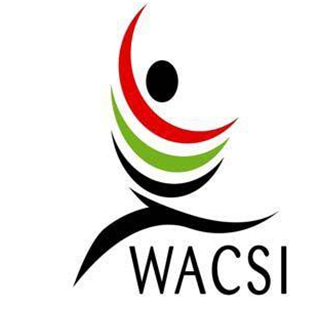CSOs Educated on Anti-Money Laundering and Anti-Terrorism Act in Ghana
Accra, Ghana – Civil Society Organisations (CSOs) in Ghana have been encouraged to take necessary measures to ensure that they are not involved in money laundering transactions and terrorism financing involvements which could jeopardise the credibility of their existence.
This call was made by Mr. Samuel Thompson Essel, Chief Executive Officer of the Financial Intelligence Centre (FIC) in Ghana, at an awareness raising session with representatives from CSOs across the country on Thursday March 28, 2013. The meeting which took place at the West Africa Civil Society Institute created an avenue for CSOs to better understand their roles and responsibilities as agents to promote security in Ghana.
Mr. Essel stated that “research and empirical evidence have shown that non-governmental organisations (NGOs) or Non-Profit Organisations (NPOs) or Faith Based Organisations (FBOs) are vulnerable to abuse by money launders as well as terrorists”. This, he attributed to the fact that these organisations enjoy public trust, have access to considerable sources of funds and often have cash- intensive activities.
Mr. Essel pointed out that the FIC would recommend the government of Ghana to establish a Special Control Unit on Money Laundering (SCUML) for Designated Non-Financial Businesses and Professions (DNFBPs), which NGOs are part. “This unit will play an active role in the issuance of licenses and the continuous operation of NGOs upon the latters’ compliance with anti-money laundering and counter financing terrorism measures”, he added.
Civil society groups have been identified as a key stakeholder in promoting the fight against money laundering and financing terrorism in Ghana. Mr. Essel explained that effective institutions in the country need to be complemented by the indispensable collaboration of civil society to ensure success in combatting these crimes.

Mr Essel speaking while Ms Nana Afadzinu, Executive Director of WACSI (middle) and Ms. Milimo Moyo, Advisor, US Treasury look on
Dr. Dorcas Appiah, Executive Director of Gender Center emphasised the need for this agenda to be driven by Ghanaians and Ghanaian institutions. She pointed out the need for the FIC and the Bank of Ghana to seek measures to resolve current challenges faced by CSOs when executing financial transactions needed to facilitate programme delivery by these organisations.
Ms. Nana Afadzinu reiterated the need for key stakeholders to contextualize the implementation of the recommendations proffered by the Financial Action Task Force (FATF) passed in 2008 in Ghana.
FATF was established by the G 7 countries in 1989 with the mandate to set international standards for combatting money laundering. In 1990, it set the first standards of 40 recommendations to combat money laundering.
For more information about the West Africa Civil Society Institute (WACSI), please visit www.wacsi.org
WACSI
Stay with Sierra Express Media, for your trusted place in news!
© 2013, https:. All rights reserved.







